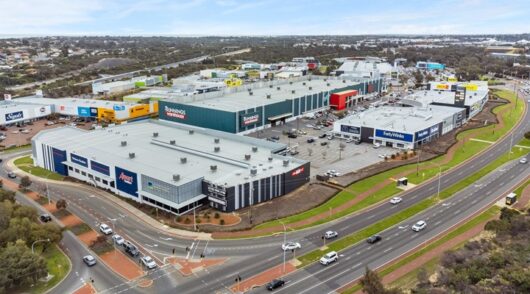King Power, the once-dominant Thai travel retailer, is closing downtown stores and shrinking operations as Chinese tourists vanish and the tourism model falters. King Power is set to shut down branches in Srivaree, Pattaya and Mahanakhon this September. The closures, alongside a voluntary redundancy program across its entire network, are part of what CEO Nitinai Sirismatthakarn called a “practical solution” to match the reality of a post-Covid travel market where old assumptions no lon
longer hold.
“The closure of these three branches is partly due to their unviable business structure,” he told The Nation. “Another factor is the need to streamline our workforce to stay competitive in a changing landscape.”
Sirismatthakarn told the Bangkok Post that the three stores to be shut down were designed to attract tour groups.
The country built a tourism economy on Chinese mass travel. Now that foundation is looking dangerously shaky and King Power, once its proudest symbol, is shrinking just to survive.
The collapse of a crown jewel
At its peak, King Power was a kingdom within a kingdom.
Founded in 1989, the company eventually secured exclusive rights to operate duty-free stores in every major airport in Thailand, plus massive downtown shopping hubs in Bangkok and beyond. It was almost impossible to avoid King Power.
But that empire is now facing a painful reckoning.
In the first five months of this year, Chinese tourist arrivals dropped 33 per cent compared to the year before, from 2.9 million to 1.9 million. That’s a massive blow for a business that relied so heavily on that one segment. Overall, foreign arrivals are down about 5 per cent from last year, but the hole left by Chinese visitors is deeper than the numbers suggest. It’s a psychological shift as much as a financial one.
Why the Chinese tourists aren’t coming
The reasons are layered. China’s economy isn’t what it used to be. The Chinese yuan is weak, the Thai baht is strong, and neighbouring destinations like Vietnam, Cambodia and even Japan (thanks to the cheap yen) are becoming more attractive. But money isn’t the only thing holding people back.
What’s hurting Thailand the most right now is safety or rather, the perception of a lack of it.
Earlier this year, a Chinese actor named Wang Xing was lured to Bangkok with the promise of a film role. Instead, he was kidnapped at the airport and trafficked into a scam compound across the Myanmar border. His girlfriend’s viral campaign brought attention to the incident, and Thai authorities helped rescue him. But the damage was done. In Chinese media and online forums, Thailand started to look less like a tropical getaway and more like a danger zone.
The problem doesn’t stop there. Tensions along the Thailand-Cambodia border have been rising again. Armed clashes broke out between the two countries’ militaries over the past week at multiple locations along the Cambodia-Thailand border.
For Chinese travelers already wary of Southeast Asia’s trafficking networks and scams, the spectre of geopolitical tension adds another layer of deterrence.
For years, Thailand’s economy has leaned heavily on tourism, which made up close to 20 per cent of GDP before the pandemic. That model worked as long as the flights kept coming and the buses kept rolling.
“With that influx now missing, it’s clear just how unsustainable the downtown model has become,” Derek Tern, regional retail project lead at Th3 Standard, said on LinkedIn. “The latest closures are necessary steps to curb the bleeding and respond to a market reality that’s changed overnight.”
King Power posted a net loss of THB937 million in 2024, a significant rise from the previous year’s net loss of THB651 million the year before.
By mid-2025, it reportedly owed more than THB4 billion in unpaid concession fees to Airports of Thailand (AOT). The government has since allowed King Power to defer some of those payments, with interest, but the fact that the bailout was needed at all hints at how far the mighty have fallen.
Further reading: Why Thailand’s liquor laws still baffle retailers and tourists.







